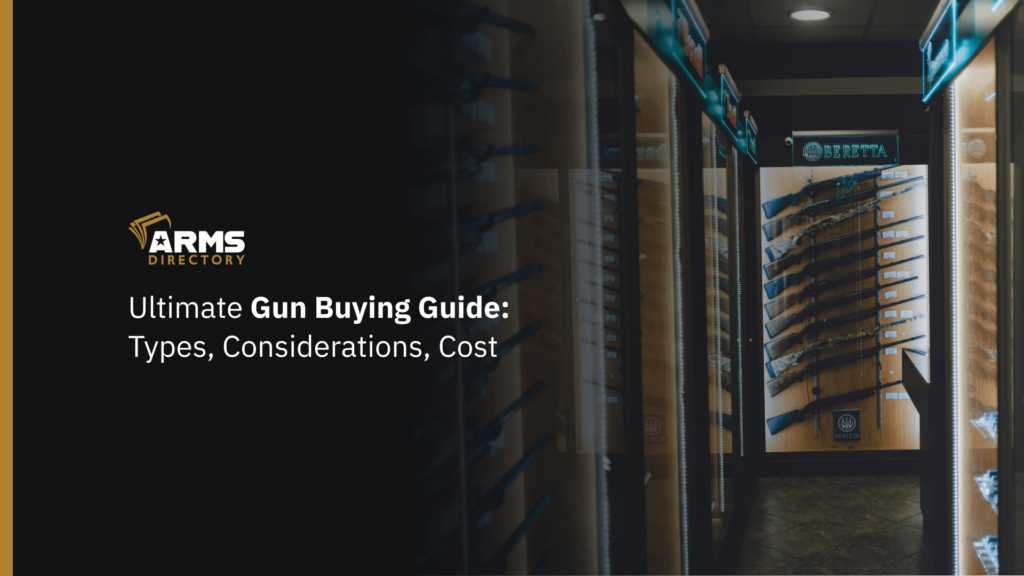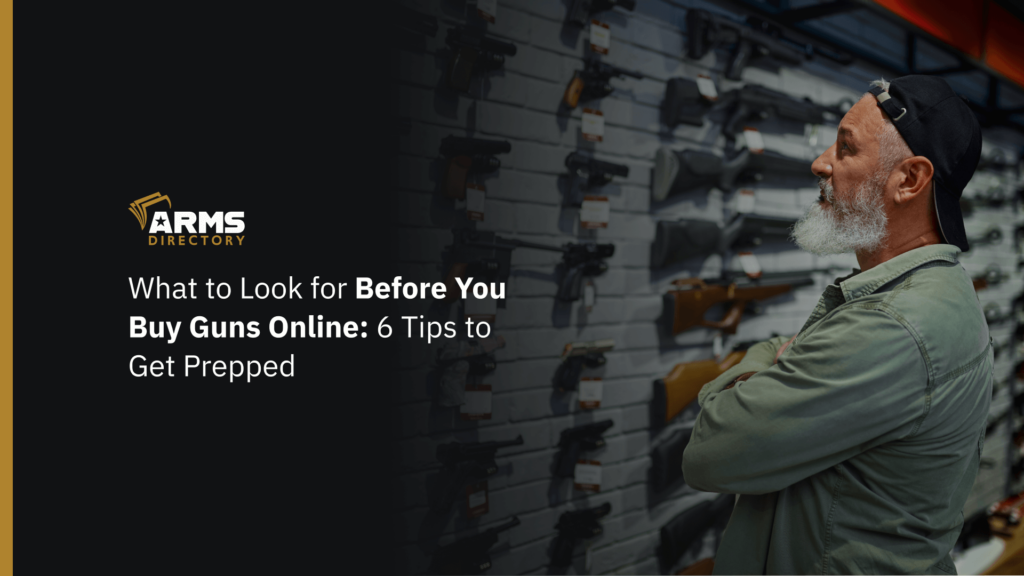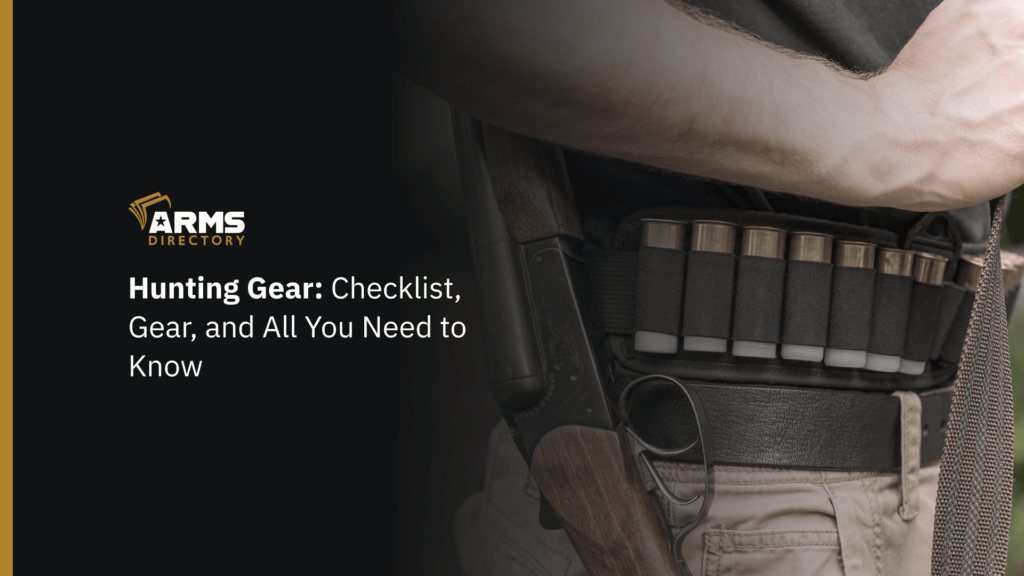![The Right Way to Buy and Sell Firearms Online [Guide]](https://vault.armsdirectory.com/wp-content/uploads/2023/10/20050323/The-Right-Way-to-Buy-and-Sell-Firearms-Online-Guide-1-1024x576.png)
The Right Way to Buy and Sell Firearms Online [Guide]
In a world where the internet has transformed the way we shop for just about everything, firearms have joined the digital shopping arena. Whether you’re an avid gun enthusiast, a first-time buyer, or someone looking to part ways with a firearm, the online marketplace offers a convenient and efficient way to buy and sell firearms.
However, before you dive into the world of buying and selling firearms, it’s crucial to understand the ins and outs of this unique market.
In this guide, we’ll be walking you through the process of buying and selling guns, covering everything from gun dealers online to the rules governing private sales when you buy and sell firearms.
Please note that this article does not constitute legal advice. Always consult a qualified attorney if you have questions about firearm transfers.
Online Gun Dealers
Let’s start by addressing the cornerstone of online gun buying and selling: online gun dealers. These businesses play a pivotal role in facilitating legal and well regulated firearm transactions.
What Are Online Gun Dealers?
Online gun dealers, also known as Federal Firearms License (FFL) holders, are businesses that are authorized by the Bureau of Alcohol, Tobacco, Firearms and Explosives (ATF).
They all operate within a structured framework to guarantee that the process adheres to all the relevant laws and regulations.
These dealers come in various forms from local gun shops with an online presence and dedicated online-only dealers to even large retail chains.
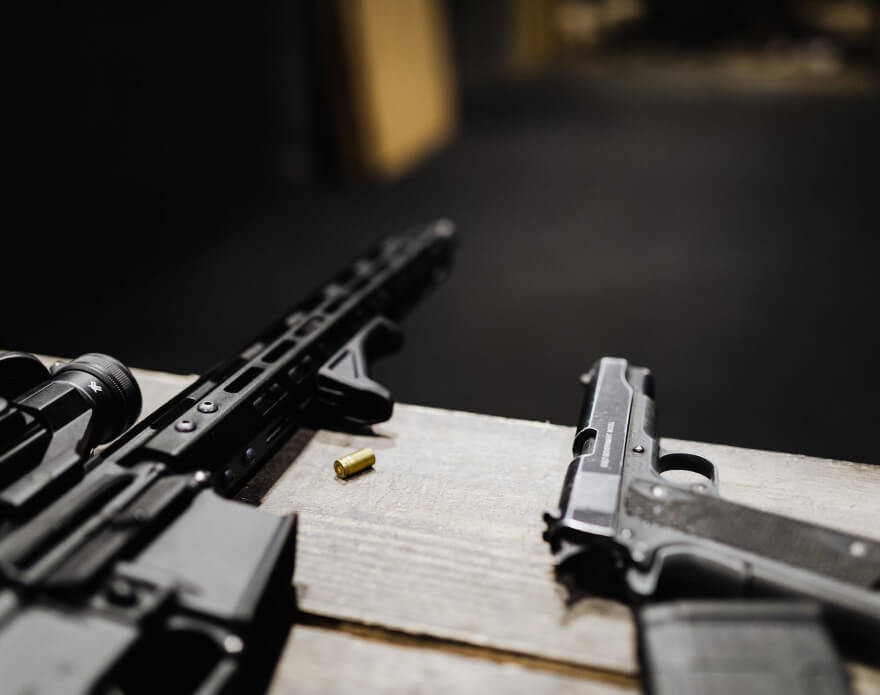
Where to Buy Ammo Online?
Selecting a trustworthy online gun dealer is paramount to a successful and lawful transaction.
Here are a few tips:
1. Research, Research, Research
Start by conducting thorough research. Look for online reviews, ratings, and customer feedback about the dealer you’re considering. A reputable dealer should have a positive track record and a history of satisfied customers.
For your convenience and enhanced shopping experience, we at Arms Directory have created a business directory where you can easily find not only physical gun stores or shooting venues, but also do the research on the most reputable firearms businesses and their e-commerce websites.
2. Verify Their FFL Status
Check that the online gun dealer holds a valid Federal Firearms License (FFL). This license is proof that they are authorized by the ATF to engage in firearm sales. You can usually find this information on their website or request it directly from the dealer. You can verify the validity of a license by utilizing the ATF’s eZ Check system.
3. Check Their Inventory
Explore the dealer’s inventory to confirm they have the firearm you’re interested in purchasing. Pay attention to product descriptions, prices, and availability. Some online inventory systems show products that can be ordered but are not necessarily stocked, so make sure you know if there will be extra shipping time if they need to order it for you.
4. Customer Service Matters
Test the waters with their customer service. Reach out to them with any questions or concerns you may have. A reputable dealer should be responsive, knowledgeable, and willing to assist you throughout the process.
How to Buy Guns Online
Once you’ve selected a reputable online gun dealer, it’s time to delve into the purchasing process.
Step 1: Choose Your Firearm
Identify the firearm that best suits you and your needs. Are you looking for a handgun for personal defense, a shotgun for hunting, or a rifle for sports shooting? Understanding exactly what you need is the first step in making an informed choice. Make sure you are aware of local laws that may prohibit you from purchasing certain types of firearms or accessories.
Step 2: Complete the Necessary Documentation
Before you can purchase a firearm, you’ll need to provide certain documentation. This typically includes:
- Proof of identity (e.g., driver’s license)
- Proof of residency
- A completed ATF Form 4473 (Firearms Transaction Record)
- A background check
Online gun dealers will guide you through this paperwork, ensuring that you have everything in order. Often, you can order a firearm from an online dealer, and have it shipped to another FFL holder near you, such as a local gun store, who will help you with some of this paperwork.
Step 3: Background Check
All firearm purchasers must undergo a background check to determine their eligibility to own a firearm. This process usually involves the National Instant Criminal Background Check System (NICS) and may take just minutes to complete.
Step 4: Payment and Shipping
Once you’ve passed the background check and all documentation is in order, you can proceed with payment. Online gun dealers typically accept various payment methods, including credit cards and electronic funds transfers.
After payment, the dealer will arrange for the firearm to be shipped to a licensed dealer near you, where you can complete the necessary paperwork and pick up your new firearm.
New Guns for Sale
One of the appealing aspects of gun buying is the opportunity to purchase brand new firearms with all the associated quality assurances.
Advantages of Buying New Guns
Why choose new guns over used ones? Here are some compelling reasons:
1. Warranty Protection
New guns often come with warranties provided by the manufacturer. This level of protection is a significant advantage for buyers.
2. Unparalleled Quality
New firearms are manufactured to the latest industry standards, ensuring top-notch quality and reliability. You can trust that your new purchase has not been subjected to wear and tear or has anything wrong with it.
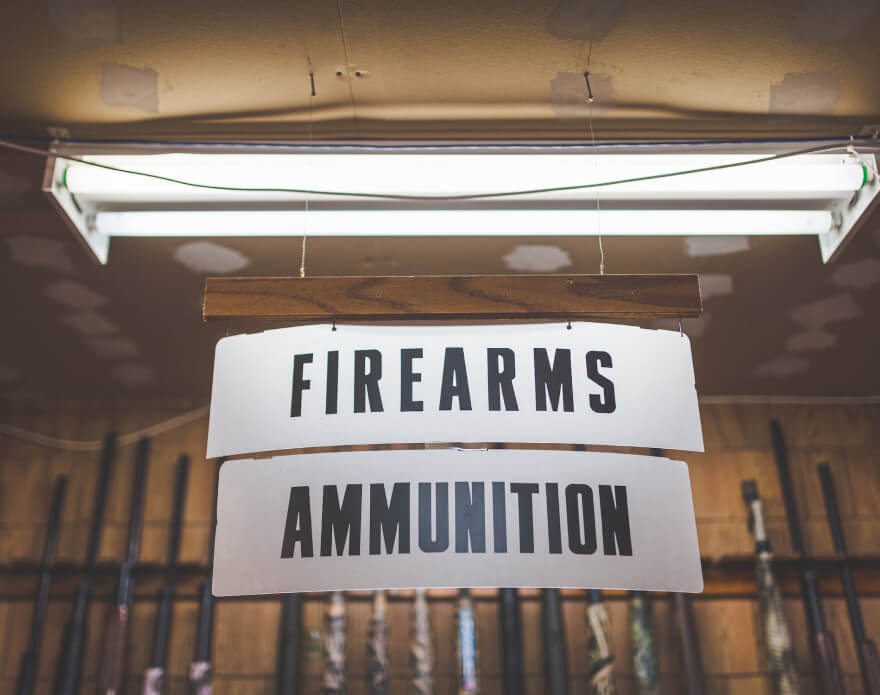
Researching and Choosing the Right Firearm
Selecting the perfect firearm can be both exciting and challenging. Here are some steps to guide your decision-making process:
1. Define Your Purpose
Start by clearly defining the purpose of your firearm. Are you purchasing it for self-defense, recreational shooting, or hunting? Your intended use will greatly influence your choice.
2. Read Reviews and Compare Options
Take advantage of the wealth of information available online. Read reviews from trusted sources and compare different models, considering factors such as caliber, weight, and features.
3. Visit Local Gun Shops
If possible, visit local gun shops to handle and test different firearms. Getting a feel for how a gun fits your hand can be invaluable in making the right choice.
Pro Tip: Check out the Business Directory’s geolocation search option which allows you to easily find a local gun shop near you.
How Much Does a Gun Cost?
In today’s guns marketplace, you can find a wide variety of weapons with prices ranging from just a few hundred dollars to several thousand.
If you want to purchase a revolver it will probably cost you between $250 and $1000 whereas a semiautomatic pistol might typically cost between $400 and $1500. Some models even go for as much as $2,000, with highly specialized models in the $5,000-$10,000 range.
Handguns such as Glocks cost between $400 and $750 while competition handguns cost between $1000 to $5000.
If you plan to buy a shotgun, expect to pay somewhere between $400 – $800 on average. Hunting guns cost $250 – $750, and lastly, an assault rifle can average between $500 – $1500 depending on make and model.
Used Guns for Sale
Used firearms offer a unique appeal, whether you’re a collector or simply looking for a more budget-friendly option.
The Appeal of Used Firearms
Why consider used firearms? Well, here are a few reasons:
1. Collectible and Vintage Options
Used firearms often include rare and collectible models that are no longer in production. If you’re a firearms enthusiast, this could be an exciting way to add unique pieces to your collection.
2. Cost Savings
Used firearms are generally more affordable than their newer counterparts. If you’re budget-conscious, buying used can be an excellent way to get a reliable firearm without breaking the bank.
How to Sell a Gun Online
If you’re looking to sell, here are a few tips on how to go about it responsibly and legally.
Steps for Listing and Selling a Used Firearm
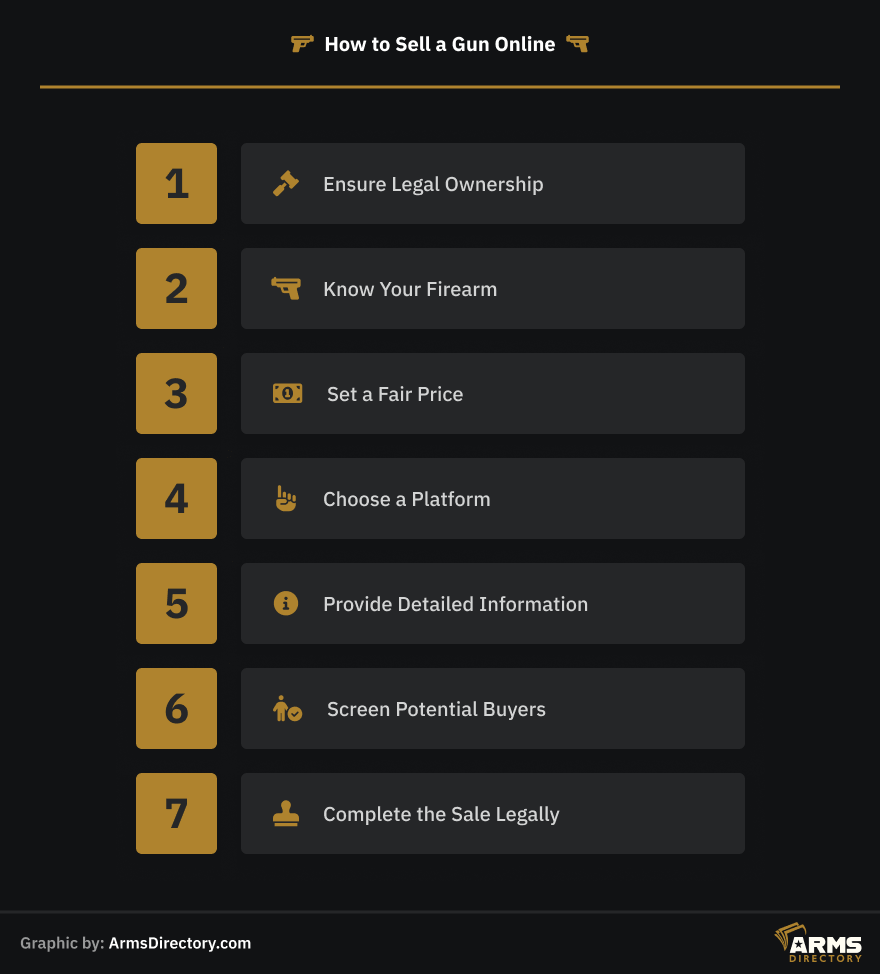
- Ensure Legal Ownership: Before selling a firearm, make sure that you are legally allowed to own and sell it. Check your local and state laws for any specific requirements. At the federal level, sellers are required to verify the buyer’s identity, age, and state of residence. They must confirm that the buyer completes Form 4473 and passes a background check through the FBI’s National Instant Criminal Background Check System (NICS). Sellers are advised to keep a bill of sale with the buyer’s identifying information and maintain sales records in case they are ever needed for tracking purposes. Failure to follow federal, state, and local laws can result in criminal penalties.
- Know Your Firearm: Gather all the relevant information about the firearm, including its make, model, caliber, and any unique features. Accurate descriptions are crucial.
- Set a Fair Price: Research the market to determine a fair and competitive price for your firearm. Be transparent about any wear or modifications.
- Choose a Platform: Select a reputable online platform or marketplace to list your firearm. Ensure that the platform allows firearm sales and complies with the relevant regulations.
- Provide Detailed Information: Create a comprehensive listing that includes high-quality photos, accurate descriptions, and any included accessories. Be honest about the firearm’s condition.
- Screen Potential Buyers: When potential buyers express interest, conduct due diligence by screening them. Be sure they meet all the legal requirements to own a weapon.
- Complete the Sale Legally: Once you’ve found a buyer, follow all the legal requirements for the sale, including background checks and documentation. Consult local and state laws to understand the specific procedures in your area.
Buying a Used Firearm Safely
If you’re considering purchasing a used firearm online, it’s essential to approach the process with caution.
Tips for Safely Purchasing Used Firearms Online
- Research the Seller: Investigate the seller’s reputation and history. Look for reviews and feedback from previous buyers to gauge their trustworthiness.
- Request Documentation: Ask the seller for all the relevant documentation, including proof of ownership and the firearm’s history. This information can help you verify the firearm’s authenticity and legal status.
- Inspect the Firearm: If possible, inspect the gun in person before completing the purchase. Look for signs of wear, damage, or modifications that may affect its value or safety.
- Transfer Through an FFL Dealer: Whenever possible and/or required, use a licensed FFL dealer to facilitate the transaction. This ensures that the necessary background checks and paperwork are completed according to the law.
Private Gun Sales and Purchases: Navigating Unique Regulations
Private sales and purchases are a distinctive aspect of the online firearm market, characterized by specific regulations and requirements. Let’s dive into the details.
Private Gun Sales vs. Business Transactions
Understanding the difference between private sales and business transactions is crucial.
1. Private Sales
Private sales involve individuals selling firearms to other individuals without the involvement of a licensed firearm dealer. These transactions often occur between private individuals, such as friends, family members, or acquaintances.
2. Business Transactions
Business transactions, on the other hand, involve licensed firearm dealers (FFL holders) who sell weapons as part of their regular business operations. These transactions are subject to strict regulations and oversight.
Regulations for Private Sales
Private sales are subject to federal and state regulations, which can vary significantly. Here are some key points to consider:
Federal Regulations
- When selling a firearm privately, ensure your ownership and if you are allowed to sell it. At the federal level, private sellers are required to verify the buyer’s identity, age, and state of residence. They must confirm the buyer completes Form 4473 and passes a background check through the FBI’s National Instant Criminal Background Check System (NICS).
- Federal law, specifically 18 U.S.C. § 922(d), requires that individuals selling firearms in private sales cannot knowingly transfer a firearm to someone who is prohibited from owning one. Prohibited persons include felons, domestic violence offenders, and individuals with certain mental health conditions.
- Private sales across state lines must go through a federally licensed firearms dealer.
- Background checks are not required for private sales at the federal level, but some states have implemented their own background check requirements for all firearm transfers, including private sales.
- The sale of firearms across state lines typically requires the involvement of an FFL holder.
State Regulations
- State laws regarding private sales vary widely. Some states require background checks for all private sales, while others do not. For example, at the time of this writing, states like California, Colorado, Connecticut, Delaware, New York, Oregon, Rhode Island, and Washington have their own state-level requirements for universal background checks covering private gun sales. The specific processes may vary between states.
- Certain states may also impose waiting periods, mandatory reporting, or other specific requirements for private firearm sale transactions.
Complying with Regulations
To ensure compliance with applicable federal and state laws, it is essential to research and understand the specific regulations in your area before engaging in a private firearm sale or purchase. Failing to adhere to these can result in serious legal consequences.
Ensuring Compliance
Navigating the legal landscape of private sales requires careful attention to detail and compliance with all the pertinent laws.
1. Verify the Legal Status of the Firearm
Before completing a private sale, the firearm in question must be legal to own and transfer in your jurisdiction. Some firearms, such as certain types of assault weapons, may be restricted or prohibited in certain areas.
2. Conduct Background Checks
Even if it’s not required by federal law, consider conducting a background check on the buyer of the private sale. This extra step can help verify that you are not transferring a firearm to someone prohibited from owning one.
3. Use Bill of Sale Forms
Consider using a bill of sale or transfer agreement to document the transaction. This document should include details about the firearm, both parties’ information, and the terms of the sale. It also serves as a record of the transaction and can be invaluable legally should something ever happen.
4. Consult Legal Resources
If you have questions or concerns about the legal side of a private sale, consult the proper resources or seek guidance from an attorney who specializes in firearms law.
Wrap Up:
The guns marketplace offers unparalleled convenience and access to a whole range of firearms. Whether you’re in the market for a new or used firearm, or you’re simply considering buying a gun for yourself, understanding the process and complying with the relevant laws and regulations is essential.
As a responsible gun owner or buyer, prioritize safety, legality, and ethical conduct in all your online or offline firearm transactions. Whether you choose to work with best online gun dealers, explore new options, or engage in a private sale, the key to a successful experience lies in knowledge, preparation, and compliance with the law.

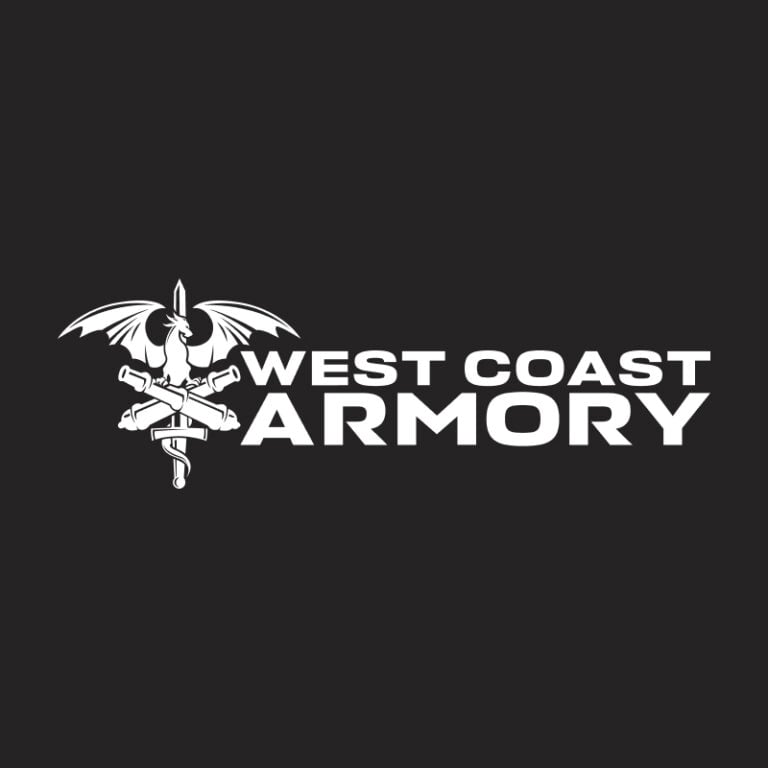
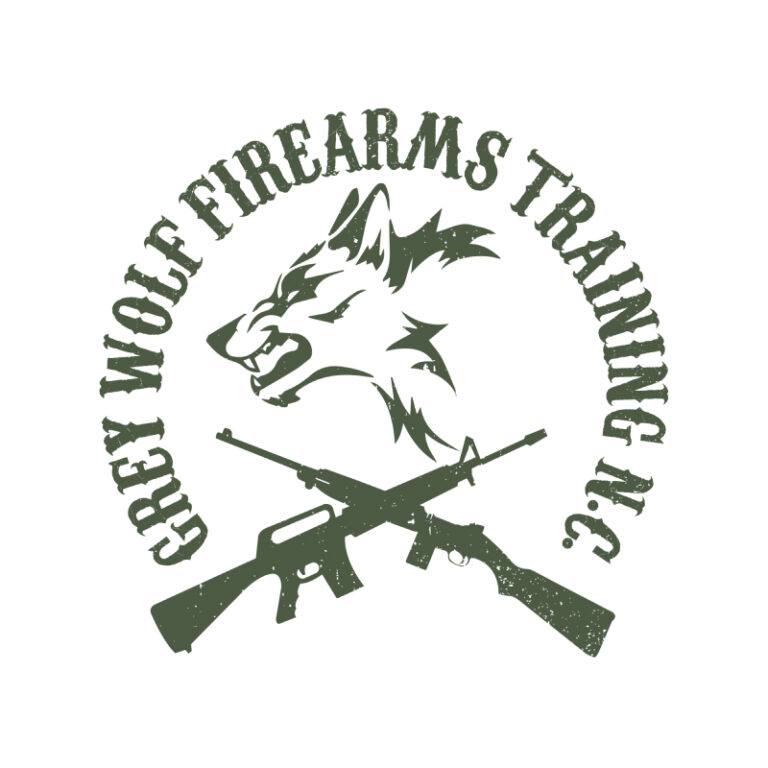
![The Ultimate Shooting Accessories for Every Weapon [A 2023 Beginners Guide]](https://vault.armsdirectory.com/wp-content/uploads/2023/08/30071223/The-Ultimate-Shooting-Accessories-for-Every-Weapon-A-2023-Beginners-Guide-1024x576.png)
![Gun Registration Requirements by State [What You Need to Know]](https://vault.armsdirectory.com/wp-content/uploads/2023/10/27073220/Gun-Registration-Requirements-by-State-What-You-Need-to-Know-1024x576.png)
